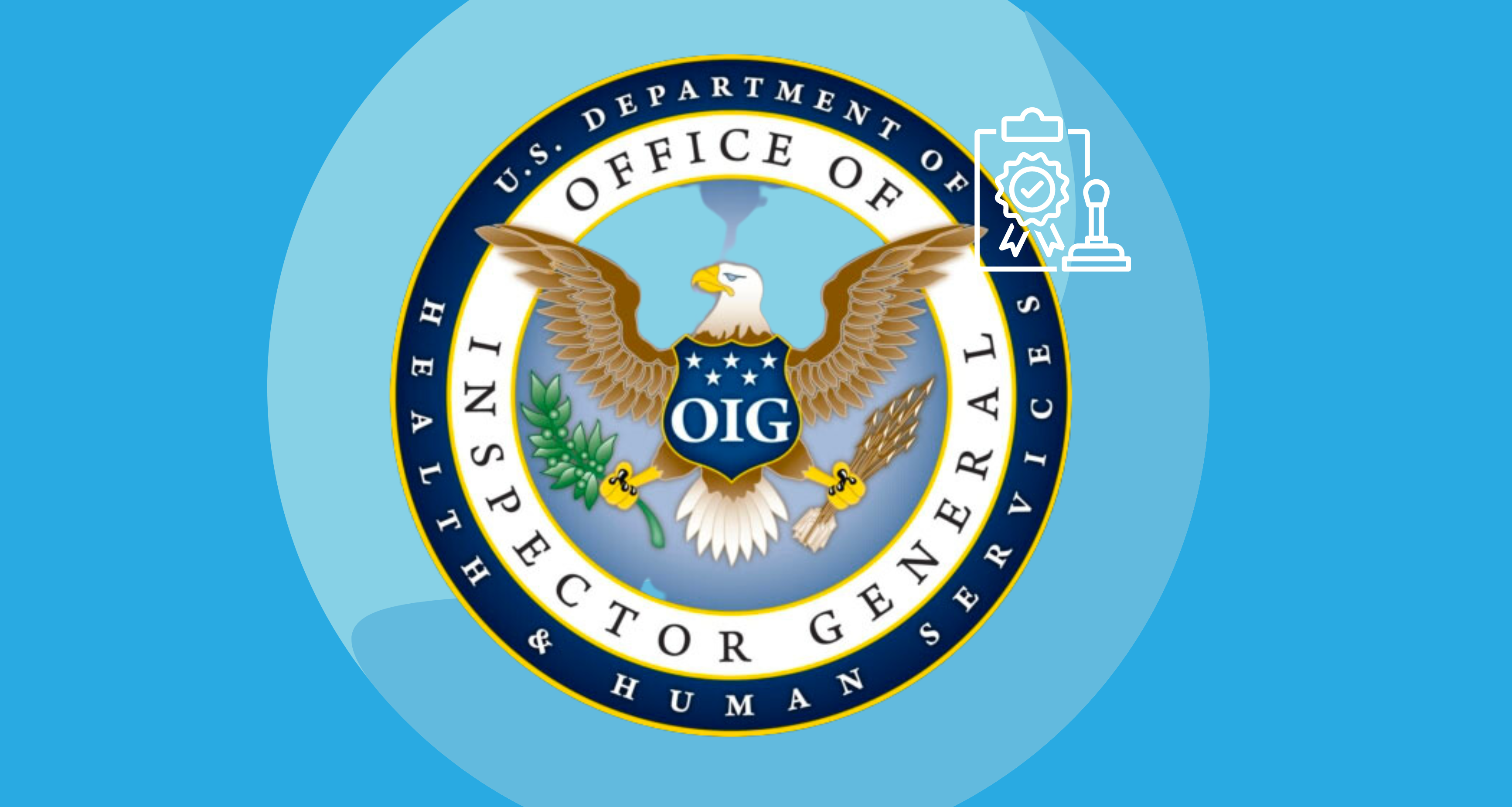
The Office of Inspector General (OIG), an independent entity within HHS, combats fraud, waste, and abuse within the healthcare system, protects the integrity of over 100 HHS programs (including Medicare and Medicaid), and protects the health and welfare of these programs’ beneficiaries.
OIG enforces federal laws and regulations. These laws and regulations include fraud and abuse laws (e.g., the False Claims Act, the Anti-Kickback Statute, and the Stark law), as well as other laws designed to protect the integrity of HHS programs.
One of OIG’s enforcement tools is its exclusion authority. OIG has the authority to exclude individuals and entities from Federally funded health care programs for a variety of reasons, including a conviction for Medicare or Medicaid fraud. Excluded individuals and entities may not receive payment from Federal health care programs for any items or services they furnish, order, or prescribe.
OIG maintains a list of all currently excluded individuals and entities called the List of Excluded Individuals/Entities (LEIE). Anyone who hires an individual or entity on the LEIE may be subject to civil monetary penalties (CMP). To avoid CMP liability, health care entities should routinely check the list to ensure that new hires and current employees are not on it.
Let’s delve into the OIG exclusion list in greater detail.
OIG Exclusions List: Protecting the People
The OIG exclusion list contains individuals or entities prohibited from participating in federal healthcare programs due to their having committed fraud with respect to those programs, or due to their having engaged in certain other activity, such as the failure to repay federal student loans for medical school. The OIG exclusion list serves several essential purposes.
1. Protects Integrity
The OIG exclusion list helps protect the integrity of federal healthcare programs by preventing individuals or entities with a history of fraud or abuse, or who have committed certain other integrity-related offenses, from participating. This ensures taxpayer dollars are not wasted on fraudulent claims or improper practices.
2. Acts as a Deterrent
The OIG exclusion list acts as a deterrent for potential wrongdoers in the healthcare industry, as they know they could face severe consequences if caught engaging in fraudulent or other excludable activities.
3. Provides Transparency
OIG’s maintaining an exclusion list, that is publicly searchable, provides transparency to patients and other healthcare stakeholders, allowing them to determine if a healthcare professional has engaged in fraud or other excludable activity. Patients, by being able to access the list, can make informed decisions about their healthcare providers.
Running an “OIG Background Check”: Searching the Exclusion List
What you might think of as an OIG “background check” is actually performing a search of the exclusion list to determine whether a particular individual or entity is on the list. OIG is required by law to exclude from participation in all Federal healthcare programs, individuals and entities convicted of certain criminal offenses (“mandatory exclusion”).
These offenses include fraud with respect to the delivery of items or services under Medicare, Medicaid, SCHIP, or other state healthcare programs. The offenses also include patient abuse or neglect, and felony convictions related to unlawful manufacture, distribution, prescription, or dispensing of controlled substances.
Other conduct can land an individual or entity on the OIG exclusion list as well. OIG has the discretion to exclude individuals and entities on a number of grounds, including (but not limited to) misdemeanor convictions related to health care fraud other than Medicare or a State health program, fraud in a program (other than a health care program) funded by any Federal, State or local government agency; suspension, revocation, or surrender of a license to provide health care for reasons bearing on professional competence, professional performance, or financial integrity; and defaulting on federal medical school loans.
To protect patients and maintain high standards of care, healthcare providers must perform regular OIG exclusion list searches of prospective hires and vendors as well as existing hires and vendors. Doing so ensures that healthcare entities do not transact business with those who have committed excludable offenses bearing on trust and integrity. Additionally, regular searching protects healthcare organizations from potential civil monetary penalties and reputational damages.








